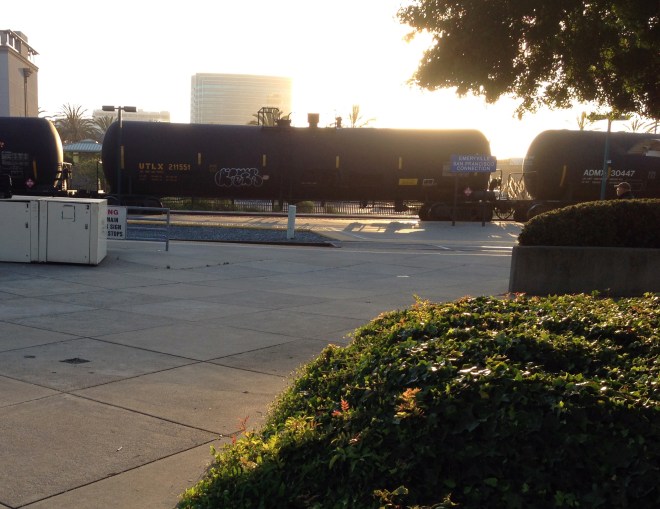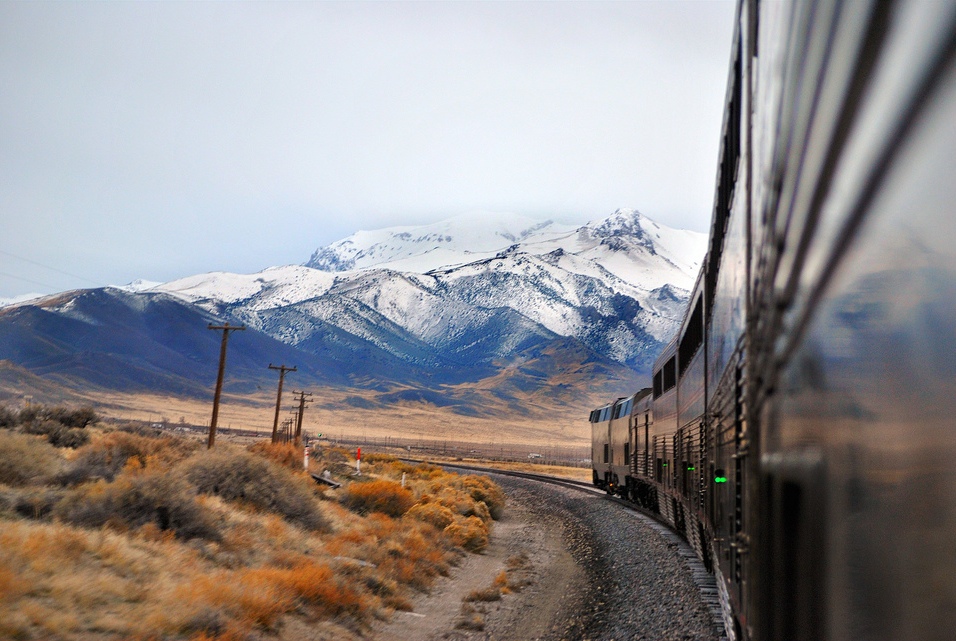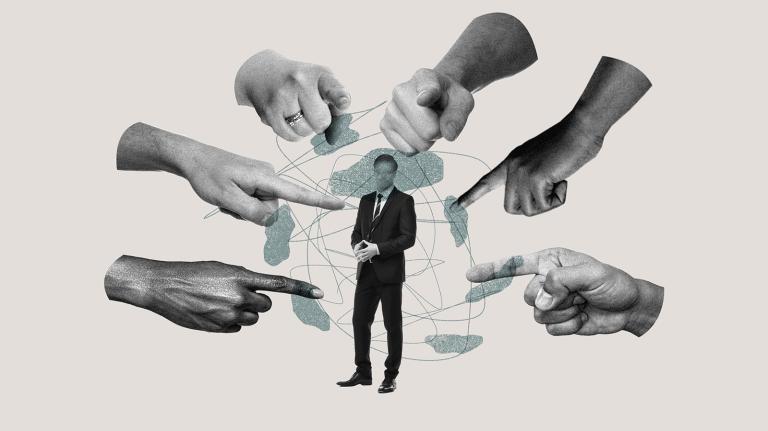Earlier this month, I moved cross-country using Amtrak. This is part four of the story. Part one is here, part two is here, and part three is here.
Things I have learned while riding on Amtrak: That if your old buddy Ferdinand Marcos invites you to come take a position in his political administration in the Philippines in the 1980s, you absolutely should not go. That being a born a red-diaper baby during the McCarthy era doesn’t help you make many friends in elementary school. That it was easier to clean the train cars back when everyone was a smoker, because smokers don’t eat all the time and throw goddamn candy wrappers everywhere. That the worst part about hiring a shaman to help you fix your relationship is that, when the relationship doesn’t work out, you feel like not only did you waste your money, but now you’re also that white guy who hired a shaman to help fix his relationship. That the Battle Creek VA hospital is not unlike the Hotel California: you can check in, but you never truly leave.
Why are train conversations so entertaining and loopy, and so unlike regular ones? Part of it must be that traveling on a train offers that special combination of “we’re trapped in this moving object together” and “I’m never going to see you again.”
There’s also the possibility that people get a little hypnotized as the landscape shutters by.
Also: People on trains seem pretty chatty, period. At the beginning of my trip on the Lakeshore Limited, the two women in the seat behind me, who were perfect strangers upon boarding the train, kept themselves entertained for hours by telling each other stories of grisly murders that they had read about, heard about, or watched reenactments of on television. “Just terrible,” one of them would say. “Yes,” the other one replied. Then they would then launch into another one.
I have a lot of work to do on this trip, so most of my conversations happen after I break down and make a reservation at the dining car, which I’ve been avoiding due to a bad pasta experience in 2012. The dining car is a risky arena for conversation. You sit where the dining car workers tell you to sit, and so you can — as has happened to me in the past — spend an entire meal being lectured about obscure differences in the manufacture of different generations of Amtrak rail cars. This time around, though, the food actually turns out to be pretty good, and the conversation better.
I have dinner with a South African man who worked for a pharmaceutical company as apartheid was being dismantled. Divestment had a tremendous effect on big pharma, he says, and so it was a great time to work there. The industry was trying hard to curry the favor of the new administration and supporting the kind of big public health projects that normally would never leave the drawing board. The next day, at lunch, I talk with a couple from Lincoln, Nebraska who tell me that they always planned to move to a more walkable city like Portland when they retired, but now that Lincoln is renovating its downtown they love the city in a way that they didn’t used to, and are beginning to think they might be able to have the same thing closer to home.
Stories like this, about rehabilitated towns, fascinate me: I spent my teens and early twenties feeling like a member of a subculture of a subculture of subculture, all because I loved walkable cities and hated driving. Where was the place for surly punks who wore all black and read Jane Jacobs? Where was the place, come to think of it, for anyone who read Jane Jacobs?
It’s a surreal feeling to realize how my teenage ideas aren’t that out-there any more, and that a lot of cities in America are places where I’d be happy living. I know from experience that this could all disappear, like the road bike fad of the ’70s, but I hope that it lasts.
When we left Denver, the card games in the observation car got even larger. The retirees who have boarded the train in Denver are making fun of the ones who boarded in Chicago, on the grounds that there is nothing work looking at between Denver and Chicago. The other Chicago contingent argues that Nebraska is very pretty, and the Denver boarders should shut up.
It also becomes clear that the tall guy in camo pants who never takes his shades off, and who has been moving from table to table in the observation car, unpacking and repacking the contents of a clear plastic trash bag, is really disturbed, as opposed to sort of eccentric. He is definitely talking to himself, and not into a cellphone. “Obama!” he says, loudly, out of nowhere, causing everyone in the dining car to jump. “An African president! It’s clearly a conspiracy!”
If telekinesis were real, you could have levitated that whole train car with the power of everyone’s determination to not engage this man in conversation. Finally, he moves on to another corner of the train. “Poor guy,” says one of the senior citizens to me, serenely, as someone else shuffles a new deck of cards. “He’s scrambled. I’ve heard him be lucid, though. Says he was in Afghanistan.”
At night, the observation car becomes, Love Boat style, a choice flirtation stop for the younger people who are riding the train. Some college-age boys are trying to, in that manner of the youth, impress the two girls at another table by describing their obscure musical tastes. “Why so competitive?” I think. “And why haven’t any of you noticed that the Swiss guy is winning, and everyone else should just give up now?” Gradually, the flirting/one-upmanship exhausts itself, and the group settles into a card game. Every so often fragments of conversation drift over.
Guy: I once thought I was losing my soul. I don’t even believe in a soul.
Girl: That was a bad trip.
Guy: That was a really good trip. I felt like my soul was hanging on a string.
Girl: When that happens you have to breathe deeply.
Guy: It got worse. It got worse. Then I started seeing rings of color. Then I saw this strange root creature that jumped over the fence and looked at me and walked on.
Girl: Wow. I want to know what strain that is.
The next morning, I wake up in Nevada.
Then Nevada slowly, and gradually, becomes California. It’s been a long time since I’ve viewed the state this way — passing directly through the industrial agriculture and infrastructure that allows cities like San Francisco to exist.
When the California Zephyr pulls into Amtrak’s Emeryville Station, it’s only 30 minutes behind schedule. This feels like a miracle, except that the friend who offered to pick me and my stuff up won’t be here for another hour. I claim my bicycle from cargo, unpack it, and reassemble it on the patio outside the station.
As I’m thinking how I will order all of this so much better the next time around, I hear the familiar sound of a train horn. I look behind me and there it is — one of the freight trains that have been making our trips late all the way across the country. The train has the Archer Daniels Midland logo on the side, but I know that most oil-by-rail is traveling in old corn syrup containers — and sure enough, when I look it up it seems to have all the relevant markings.

It’s strange, after writing so much about oil trains, to see one up close and in the wild, just a few blocks away from my old apartment. Crude by rail poses risks that many cities are trying to puzzle out. But right now, as I’m standing there in the balmy, late-summer air, watching the train roll through the intersection, the cars are backlit by the setting sun, and they look pretty — like a row of black licorice candies.



